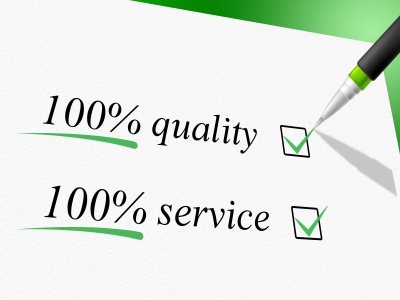
Image courtesy of freedigitalphotos.net/Stuart Miles
Testimonials, reviews, recommendations – these have always been important to growing your book of business, but it is now even more so. In this three-part Rainmaking Recommendation series, I will detail the differences between a testimonial, a review, and recommendations (part 1). In part 2, I will discuss how to obtain these important evaluations of your services on a regular basis. And in part 3, I will write about how to deal with bad reviews.
Recommendations, Testimonials, and Reviews:
Prior to the internet, recommendations were given by word-of-mouth. What that means is that a person may be talking about the fact they are seeking an attorney and another person will happily tell them about their experience with the attorney they worked with if it was good. And, more importantly, will happily tell you when the experience sucked.
But now, you can search out an attorney’s name, and in many instances, there are reviews and testimonials everywhere. There are even niche websites where people can go and write reviews about your legal services.
The Difference between a Testimonial and a Review:
While one might think that these words are synonymous, they are not. There is a vast difference between a testimonial and a review.
A testimonial is a solicited comment which you specifically request. You may ask your best clients to write something about your services. You cherry-pick from whom you would like to obtain the remarks, ask them to send them to you directly knowing that because you have a wonderful relationship with this client they will write something wonderful about your legal services. These evaluations of your legal services are always, without exception, glowing. This is because you control whether or not to post it – traditionally to your law firm’s website or other internet sites which you, personally, control.
A review, on the other hand, is an unprompted appraisal of your legal services. Customarily, it is posted on a third-party site, for example – Google, AVVO, Martindale.com, Lawyerratingz.com – and you have no control over what the person is writing in that assessment. It could be good or it could be bad, but it is available to the public and for the public to see.
Why are Testimonials and Reviews Important?:
According to research done by BrightLocal, 91% of people regularly or occasionally read online reviews and 84% trust those reviews as much as a personal recommendation. And, FindLaw has specifically found that “ . . . that consumers are more likely to hire a lawyer who has online reviews. In addition, most consumers have used online reviews in choosing providers of professional services.”
Both testimonials and reviews will help you with your business development:
- They lend credibility to what you do as an attorney.
- They can get you higher rankings on search engines as they are additional content that the search engines love.
- The feedback can help you decide how to grow your firm by providing you information on what your clients want.
- And these reviews can help build trust with potential clients.
Because, remember – people do business with people they know, like and trust.
Speak Your Mind